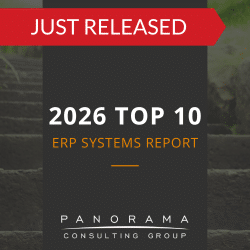What happens when project managers with high job security are put in charge of an ERP implementation with an inherently high chance of failure? In light of the recent Obamacare IT failure, this is a question that seems to have been answered.
However, I think the question that was answered was more along the lines of, “What happens when project managers with limited knowledge of best practices are put in charge of an ERP implementation? “
For government agencies implementing ERP software, the latter question is the question that they should ponder. The first question fails to get at the real issue. While a low threat of job loss and low motivation don’t help matters, it’s certainly not the only problem that derails implementations.
There are many other factors that contribute to poor project management and thus ERP failure. While I can’t say whether or not the Obamacare IT failure was a result of low motivation, it’s safe to assume that it was largely a result of limited project management experience and expertise. We can blame high job security all we want but accountability is only part of the equation for success – in-depth knowledge and “in-the-trenches” experience is the other part.
Following are five tips for finding a project manager with the right expertise to oversee your public sector ERP implementation:
1. Project managers shouldn’t be afraid to point out problems even if it slows the implementation. It’s better to fix problems and mitigate risks sooner rather than later.
2. Project managers should clearly communicate expectations to the ERP project team. Throughout implementation, they should regularly asses milestones and measure results.
3. Test, test, test! Project managers should thoroughly test ERP software before going live. Conference room pilots are a project manager’s best friend.
4. Project managers should develop an ERP implementation plan that addresses project timeline, scope and resources.
5. Project managers should not go it alone. Even if your internal project manager has years of experience and “enough time” to devote to the ERP implementation, hiring an outside resource can ensure that “enough time to do the job” translates into “enough time to do the job right.”
While there are a number of factors that can contribute to ERP failure, government agencies should focus on the factors most within their control. Organizations that hire outside resources, such as Panorama, to manage their implementation will benefit from the knowledge and best practices that lead to ERP success.













